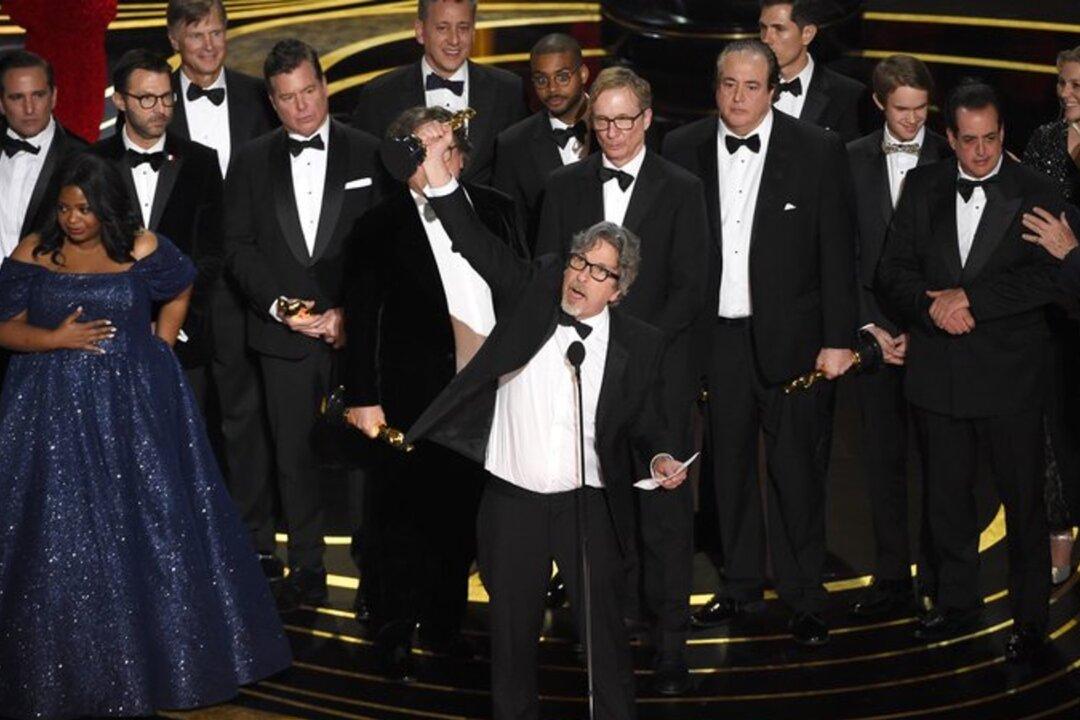LOS ANGELES—The segregation-era road-trip drama “Green Book” was crowned best picture at the 91st Academy Awards, delighting those who felt the film was a touching and complex film about friendship, but disappointing others who saw it as an outdated inversion of “Driving Miss Daisy.”
Many in Hollywood had hoped the top award would go to Netflix for “Roma” or Marvel for “Black Panther,” but the motion picture academy instead threw its fullest support on Feb. 24 behind the traditional tale based on Peter Farrelly’s “Green Book.”





